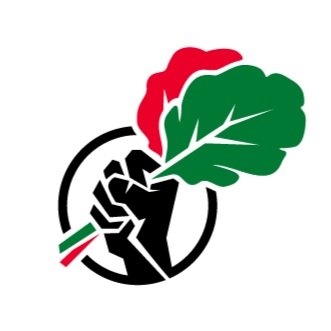The Justice for Black Farmers Act
During the Summer of 2020, members of the National Black Food and Justice Alliance engaged in conversations with Sen. Cory Booker and Sen. Elizabeth Warren’s teams about what kind of legislation would be meaningful for our constituents. We engaged in numerous conversations about the history of discrimination and displacement against Black communities and particularly Black farmers--from the decimation of our Black farming communities drastically reduced by 98% to the ongoing harm on the part of the USDA specifically against Black land stewardship and future generations of Black farmers.
Our message: land has never been “lost.”
There have been very deliberate and systematic assaults on Black --and Indigenous-- communities that continue to dispossess us of the means to steward land and nourish our communities. These attacks have been enacted or protected by actors within the USDA. While we know the Pigford lawsuits exposed systematic discrimination on the part of the USDA, we know the settlements did not go far enough. Black people’s means to steward land has never been recovered and Black farmers had been mired in all sorts of debt and continued discrimination since. Our position has always been that the incredible work that our predecessors (and including some of our members--special shout out to Land Loss Prevention Project and Operation Springplant) have laid before us via the Pigford lawsuit is unfinished.
Until we see the rise of Black land stewardship, the rates of Black farmers increase exponentially and an investment in the future generations of Black farmers, we haven’t realized that particular vision to completion. Yet.
Which leads us to the introduction of what we now know as the “Justice for Black Farmers Act.” We know what the problems are and that our people deserve so much better. Our contributions to the Justice for Black Farmers Act have been rooted in the wisdom of lessons from past failures and an investment in steps towards a radical reclamation of what we know our communities need and deserve. Educating the legislative team about historical and continued violence was important, but so too was naming our own solutions. Therefore, so much of what you see in this legislation was actually named by US, including our members. We all worked collaboratively with input from HEAL Food Alliance, and we also pointed the legislative drafting team to talk to some of our other partners and comrades in the field. What resulted in this draft is something we are very proud of.
It makes up to 160 acres of land available to any Black person committed to stewarding land, provides resources to individuals and newer emerging Black-led organizations, invests in HBCUs and Black land grant institutions, provides legal support for Black farmers, support for Black farmer training programs, eradicates debt from Pigford claimants, and so much more.
When we engaged in this discussion, we named what we want to see and what we want to see in future bills as well, including reflecting justice for Indigenous communities. We will continue to be in conversations with the staff, as it is important to see a long term commitment to justice for all of our communities around land. While this bill is incredible, it is only a step towards a larger strategy for justice that WE define. Together.
Policy has historically been and often continues to be unapologetically anti-Black (and anti-Indigenous), so we must be unapologetic in our demands to name legislation that directly counters the racialized violence against our communities. We are very pleased with and excited about the outcomes of the Justice for Black Farmers Act as it stands today and are asking our members, comrades and supporters to sign on to this piece of legislation so that it has no choice but to pass. Again, this is only a step --a really good step-- but a step, nonetheless, in where we need to be working towards. There is so much more to do to realize actual justice for our people. And the work that we do together helps to build the container for us to define justice, create the conditions, and actualize what our people need and truly deserve.
